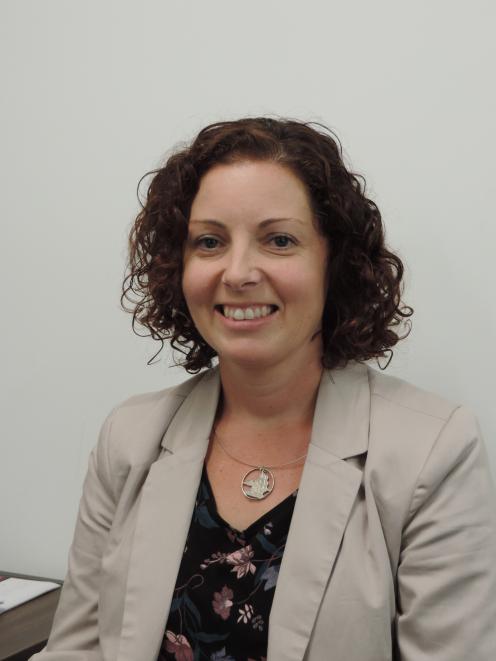
Ms Soal took up the role a month ago, leading the national not-for-profit membership body that looks after the interests of farmers and growers who use irrigation and the industry that serves them.
She had "big shoes" to fill, replacing the charismatic Andrew Curtis, who held the position for a decade, she said.
Whereas Mr Curtis worked from the INZ head office in Lincoln, Ms Soal is commuting from the North Otago town where she and her husband Shane have chosen to raise their son, James (9).
"It's such a wonderful town for children."
Staying in Oamaru made sense, she said. She lives in between two of the largest areas of irrigation in New Zealand, and it keeps her connected to farmers.
Ms Soal was the Waitaki Irrigators Collective director of strategy and policy for the past eight years, a member of the INZ board from 2011 to 2016, and only recently relinquished her position on the Edinburgh-based Technical Committee of the International Alliance for Water Stewardship.
She has degrees in both politics and law from the University of Otago and is partway through a PhD on freshwater governance in New Zealand.
As a 2014 Churchill Fellow, Ms Soal spent four weeks in Canada studying research projects and farming systems seeking to improve both water quality and productivity.
That was sound preparation for the INZ position. The organisation has adopted a new strategy focused on responsible water use for food production. It aims to encourage innovation through sharing ideas and taking up technology, bringing all parties together to make decisions that benefit everyone, and creating world-leading standards.
It also entails sticking up for irrigation and irrigators, who are sometimes painted as pillagers of water resources.
The strategy would take the industry in "a really positive direction", Ms Soal said.
So far she has spent about three days a week in either Lincoln or Wellington.
"It's a steep learning curve. There's a lot going on in Wellington at the moment."
Ensuring the wider population had balanced, accurate information about irrigation was "really complex", she said.
Aspects to be factored in included science, environmental outcomes, and the need to produce food, jobs and healthy communities.
Because people had a strong emotional connection to water, it was difficult to get well-reasoned debate.
She believed iwi would have greater input in water governance and in consultation.
The words "mauri" (life force) and "te mana o te wai" (the quality and vitality of water) were "incredibly important".
"Water is a taonga with its own fundamental value. Water is life."
New Zealand needed to plan how it managed water for the next 50 years, Ms Soal said.
It would involve storing water for use during more frequent droughts and ensuring water was channelled appropriately in the more intense downpours predicted.
There were two sides to managing water use - technological and political.
"When there have been crises, they have been caused by governance, not by infrastructure."
INZ had a strong team that covered both sides, she said. Her own background in political science should be useful in addressing the governance side, and in advocating for the tangible benefits that irrigation brings by growing more food and increasing jobs, wealth and the diversification of communities.
The Waitaki Valley was proof of that, she said.
"We're blessed."
SALLY.BROOKER @alliedpress.co.nz













